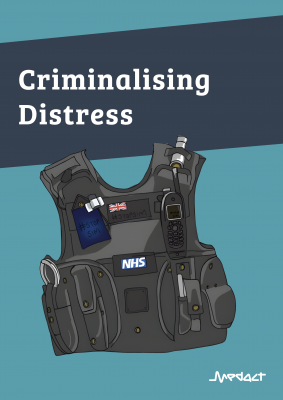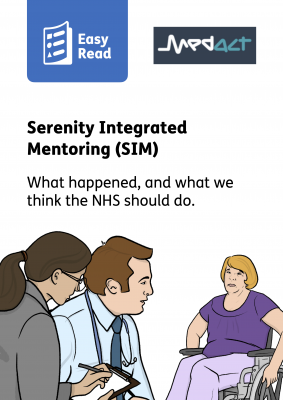
Criminalising Distress examines practices associated with the Serenity Integrated Mentoring (SIM) scheme, which targeted people at high risk of suicide and self harm who frequently contact emergency services, and became a national scandal in 2021 as a result of a campaign by the StopSIM Coalition.
Critically, the report outlines ongoing police and NHS schemes which continue to criminalise distress today, including schemes through which police remain embedded in the mental health system.
Building on the work of service users / survivors, including the StopSIM Coalition, we argue that:
- The systemic conditions which enabled SIM – entrenched coercive mental health care practices, behaviourism, neoliberalism and the stigmatising ‘personality disorder’ construct – remain intact
- Service users’ testimonies show SIM-like practices caused iatrogenic harm, while health workers who tried whistleblowing were punished for speaking out
- A culture of unaccountability and blame-shifting has resulted in a lack of meaningful institutional change
- Though NHS England called for SIM-like practices to be “eradicated”, our research found multiple ongoing schemes which continue to criminalise distress including PAVE, FERN, HaRT and Op Ipsum.
We call for:
- An end to punitive, exclusionary and discriminatory practices, and NHS collaboration with police to criminalise people in distress
- NHS England to apologise to the StopSIM Coalition and launch an independent inquiry into ongoing SIM-like practices
- Government to address the social determinants of mental health upstream as well as funding non-coercive, community-based crisis support.

We have also published an Easy Read version of the report, with the title ‘Serenity Integrated Mentoring (SIM): What happened, and what we think the NHS should do.‘
The Easy Read version presents the findings of the research in an accessible, easy to understand format.
This Easy Read booklet was produced by easy-read-online.co.uk.